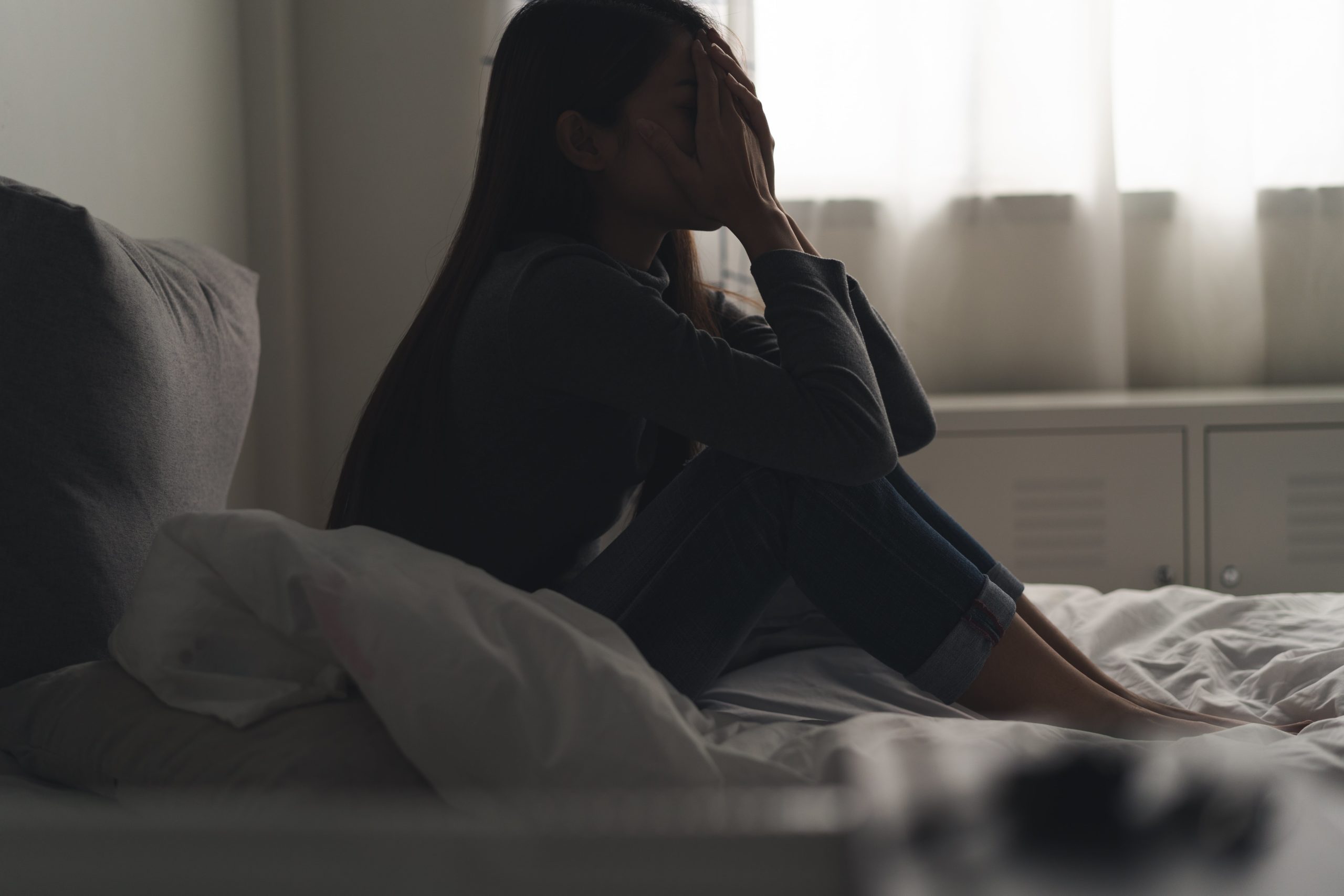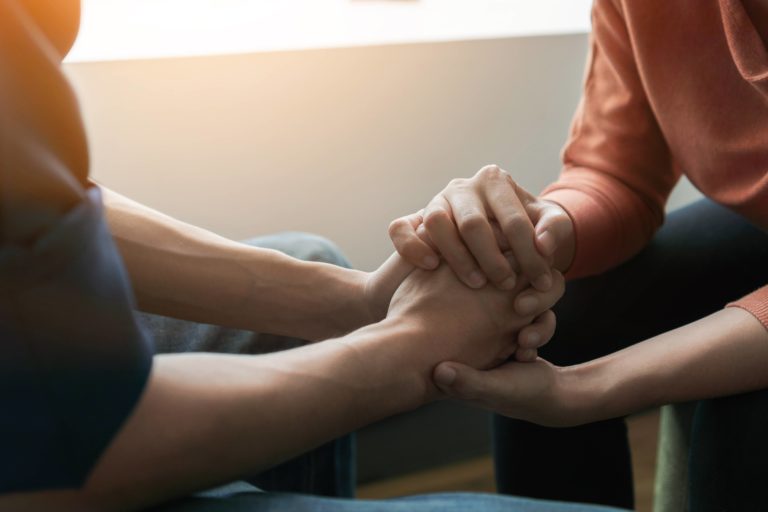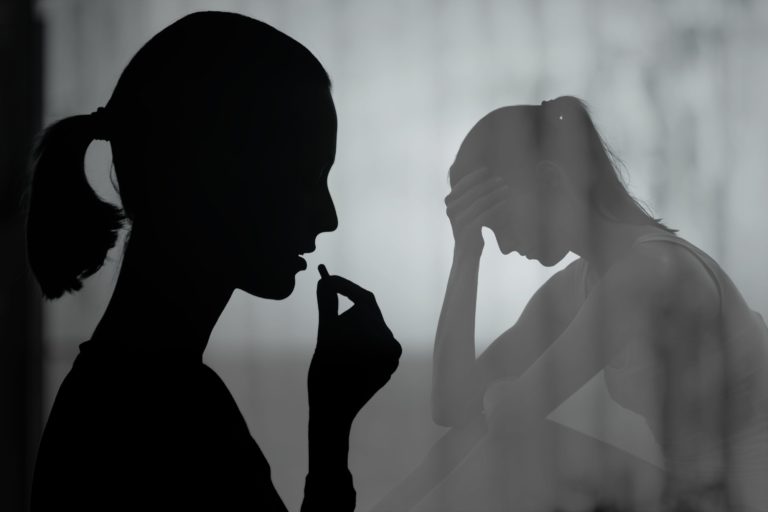Depression is one of the most common mental health conditions. According to the World Health Organization (WHO), about 5% of adults throughout the world live with symptoms of depression. Yet, even though tens of millions of adults have depression, many people continue to have questions about this disorder. Common queries include: What are depressive disorders?, What are the symptoms of depression?, and What does depression feel like?
What Is Depression?
Depression can refer to several mental health disorders that affect a person’s mood and energy levels. What does depression feel like? Common characteristics include pervasive sadness, loss of motivation, and difficulties related to focus and concentration.
Three common types of depression are major depressive disorder, persistent depressive disorder, and postpartum depression:
- People who have major depressive disorder will experience intense, highly distressing symptoms that last for a period of at least two weeks. These symptoms will be severe enough to impair the individual’s ability to function in one or more important parts of their life.
- Persistent depressive disorder includes symptoms that are usually less intense, but that last for at least two years. During this period, a person who has persistent depressive disorder may have major depressive episodes.
- Postpartum depression develops in the aftermath of giving birth. Among other the effects of postpartum depression, this disorder can undermine a person’s ability to form a healthy attachment to their child.
What Does Depression Feel Like?
What does depression feel like? The answer can vary considerably from one person to the next. The impact of depression can depend on several factors, such as which depressive disorder a person has, how old they are, what types of symptoms they have been experiencing, and if they also have any co-occurring mental health concerns.Depending on all of these influences, here are some of the ways that depression can affect how a person feels, thinks, and acts:
Physical Symptoms of Depression
Yes, depression is a mental health disorder. But mental health concerns can also have physical symptoms. If you have depression, the physical effects might feel like these examples:
- You sleep much less or much more than you should.
- Even if you had a good night’s sleep, you still struggle with overwhelming exhaustion or persistent fatigue.
- Some days, you may not be able to summon the energy to brush your teeth or take a shower.
- You often have headaches, stomach aches, and other generalized health maladies that don’t have an easily identifiable cause.
- You seem to be more susceptible to colds and other health concerns.
- You have a significant change in appetite, which causes you to eat much more or much less than usual. This, in turn, leads to weight gain or weight loss.
Psychological Symptoms of Depression
The psychological impact of depression can feel like one or more of the following examples:
- It has become difficult for you to focus and concentrate. You may even struggle to follow conversations.
- You’ve lost your sense of motivation. In the mornings, you have trouble even getting out of bed. Even if you like your job, you have little to no desire to go to work.
- You’ve begun to lose interest in hobbies, sports, and other topics or activities that used to be important to you.
- It’s been hard for you to feel pleasure or experience joy.
- Even minor challenges can feel like overwhelming obstacles. These experiences can quickly cause you to become frustrated or even to lash out in anger.
- You have been having thoughts of death and dying. This may include thoughts of suicide or a wish that you could somehow just disappear. You’re beginning to believe that your friends and family would be better off if you weren’t around.
Behavioral Symptoms of Depression
Behavioral symptoms might not answer the question, “What does depression feel like?” but they can indicate that someone you know has been struggling. Here are a few examples:
- The person has begun to pull away from friends and family members. They don’t answer your calls and text messages. They often cancel plans with no legitimate reason.
- They regularly make self-deprecating or self-critical remarks. They may speak negatively about their body, their intelligence, their abilities, or any other personal qualities.
- They are failing to meet important personal and professional responsibilities. This may include frequent unexplained absences from work or school.
- Their performance at work or in school has begun to decline noticeably.
- They seem to have stopped caring about their appearance and personal hygiene.
Short- & Long-Term Effects of Depression
Descriptions of symptoms aren’t the only answers to the question, “What does depression feel like?” When you are living with untreated depression, you remain at risk for myriad short- and long-term effects. As with the symptoms listed above, the effects of depression can impact your body and mind. They can also alter how you interact with other people.
Potential effects of depression can feel like this:
- Your relationships with friends, family members, and romantic partners may suffer. This can result from mood swings, emotional outbursts, a desire for isolation, and other symptoms.
- You may begin to abuse alcohol or other drugs in a misguided attempt to ease your psychological pain. This can lead to an array of additional problems, including addiction.
- Your physical health may begin to deteriorate because you haven’t been eating well, exercising, or otherwise taking care of yourself. You might be unwilling to go to the doctor when you don’t feel well – and even if you do, you may have no interest in following their instructions.
- Frequent absences and diminished performance at work can lead to job loss and unemployment. This, in turn, can cause considerable financial problems.
- Your urge to withdraw from family and friends can lead to isolation and a lack of essential personal support.
- Your thoughts of death and dying may lead to suicidal thoughts and suicidal behaviors.
Begin Depression Treatment in Nashville, TN
If you have been struggling with a depressive disorder, then you already know what depression feels like. What you may not realize is that depression is a highly treatable condition. For adults in the Nashville, Tennessee, area, Arbor Wellness is a trusted provider of quality clinical care and comprehensive support. To learn more about how Arbor Wellness can help you or someone that you care about, give us a call or visit our admissions page today.


















